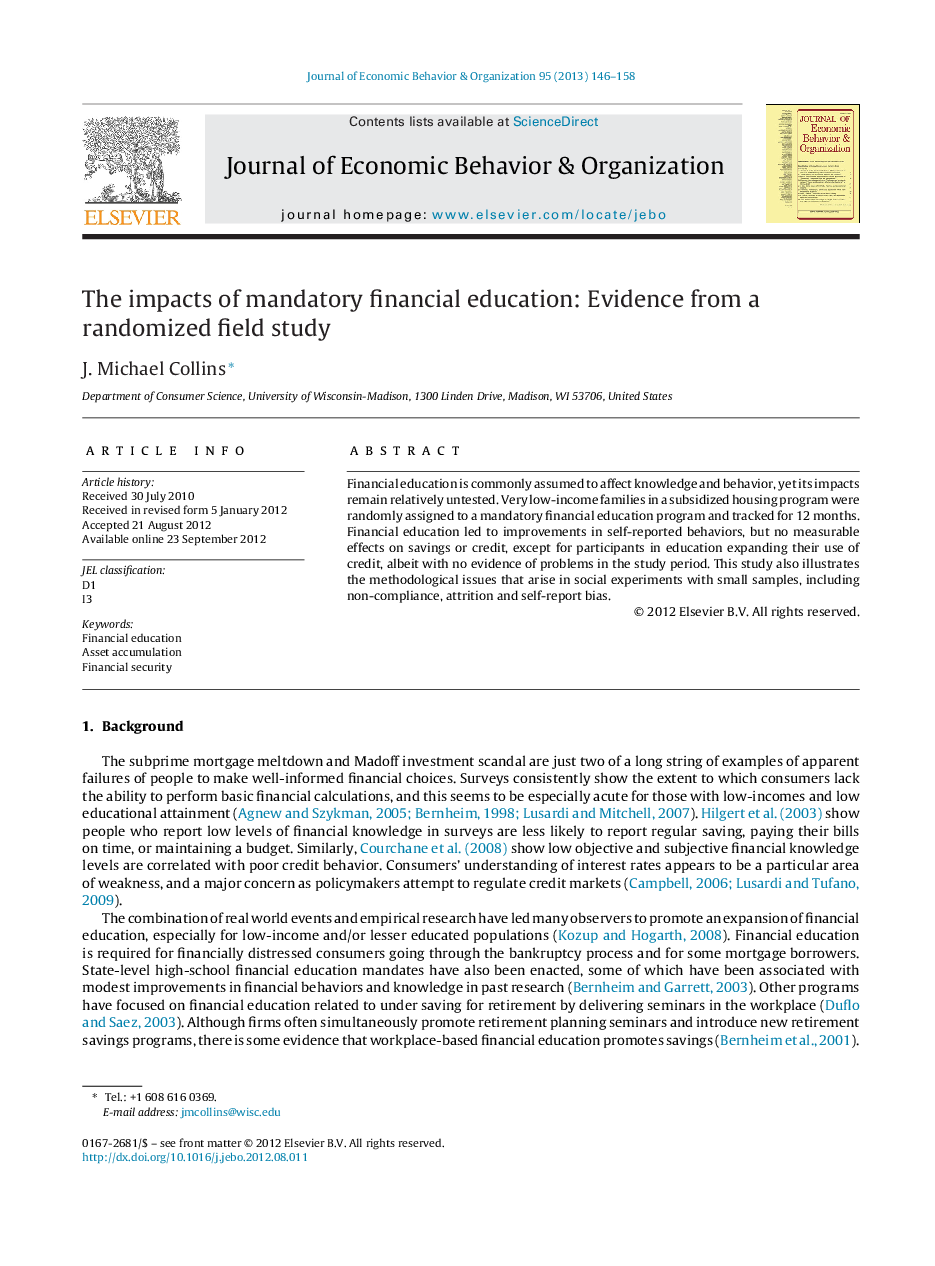| Article ID | Journal | Published Year | Pages | File Type |
|---|---|---|---|---|
| 883590 | Journal of Economic Behavior & Organization | 2013 | 13 Pages |
Financial education is commonly assumed to affect knowledge and behavior, yet its impacts remain relatively untested. Very low-income families in a subsidized housing program were randomly assigned to a mandatory financial education program and tracked for 12 months. Financial education led to improvements in self-reported behaviors, but no measurable effects on savings or credit, except for participants in education expanding their use of credit, albeit with no evidence of problems in the study period. This study also illustrates the methodological issues that arise in social experiments with small samples, including non-compliance, attrition and self-report bias.
► This experiment tests financial education for very low-income people. ► After 12 months, education is associated with improvements in self-reported behaviors. ► Education has no measurable effects on savings, but is associated with more borrowing. ► While borrowing increased, there is no evidence of problems paying bills. ► The study addresses several problems associated with field experiments.
